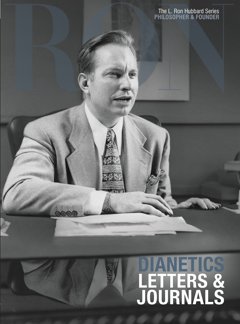Everything about Dianetics
Everything about Dianetics
Blog Article
Top Guidelines Of Dianetics
Table of ContentsThe Ultimate Guide To DianeticsAbout DianeticsDianetics for BeginnersDianetics for Dummies
I could not ever before not desire to obtain anything that enters your mind for you- if it was or else, I wouldn't be sitting right here with you, doing this. I not only can never ever have a trouble, or otherwise wish to hear something that comes to mind for you, yet I'm completely anxious to recognize every idea, every thought, every image or feeling that arises or shows up for you- do not ever before assume otherwise, and if for one reason or another you do, please just allow me understand! Often, you might have a thought, and image, idea or event appear that does not seem to answer the inquiry, or connect to it, however nonetheless, constantly do inform me about it, and as we continue, the significance will certainly emerge for you.This is intrinsic in the basis of processing, and the topic of this conversation: the basic roles of the therapist and the client: The fundamental duty of the therapist is, in contrast to "standard training", not to manage, which suggests to apply and/or prevent, yet to instead work from the basis of EMPOWERING THE CLIENT.

Dianetics - Questions
John Mcmasters revealed this basic fact incredibly well in one of his lectures on Power handling, where he explains how he was asked what this "special knack" was that he had for providing such wonderful sessions; he had to consider that for a moment, and identified that it was what he had not been doing, as well as what he was doing: he had not been assessing, evaluating, computer, or actually, generating any ideas, not to mention spoken expressions, after giving the command and while awaiting the computer to finish their answer to their contentment; he was, simply and only, being present with the computer, and completely interested.
The duty of the therapist, demonstrated; that was his "special flair". I have actually had my very own experience which showed me this well, very early in the game. In 1982, having actually just recently completed my training and internship on New Age Dianetics, I was running this on a COMPUTER, and there was a factor in the session where (being a little bit damp behind the ears not yet having several hours under my belt as a specialist auditor) the computer seemed to be "taking as well lengthy" to express anything verbally after I gave him a webpage command.
This trick became one of the most important payment that John ever made to the subject of treatment or bookkeeping (Dianetics). In my humble viewpoint, it is the biggest payment that anybody has actually ever before made to these subjectsthe application is completely non-judgemental, non-evaluative, and empty of any idea, suggestions or opinion.no preconditioned agenda for people, or 'levels' that they must do
In Idenics, the only source of information concerning a client is the specific client. In Scientology we prided ourselves on not reviewing for individuals. All that truly implied was that the auditor did not Vocally review for the Computer in session. The registrars and ethics officers assessed for the PC.
The Best Guide To Dianetics

Anybody that had actually ever seen John audit could not aid yet notice a special high quality in his auditing."The client's standard duty is to be there with the objective of relocating in the instructions of their spiritual goals, and to easily and completely reveal and experience whatever shows up for them in answering the questions and performing the instructions in the processing.
This is something to procedure as required. Also, people often have previous experience and/or brainwashing in auditing/processing which, in some methods, and to some degrees, really misleads them into mindsets, ideas and actions patterns that protect against the complete realization of these roles, and so they will have a tendency to prevent the expressing of what comes to mind, as in the instances offered over - Dianetics. * The first, and maybe leading instances of mis-indoctrination leading to less than entirely smooth and efficient sessions, can be discovered in specific elements of the training routines, or "TR's":"TR's" are commonly an individual's first, or at the very least early, experience in Scientology, and while I will go on to discuss what I see as the problems in idea and method, nonetheless, have a tendency to be significantly therapeutic, done as they are offered (Hubbard firmly insists view publisher site that "TR's are not processing, they are educating", but factually, they are both learn this here now handling AND training)
There is no "failing", and no rejection of the reality of this being handling. The focus, as it ought to be, is on experiencing the other person's existence.
The Ultimate Guide To Dianetics

Report this page